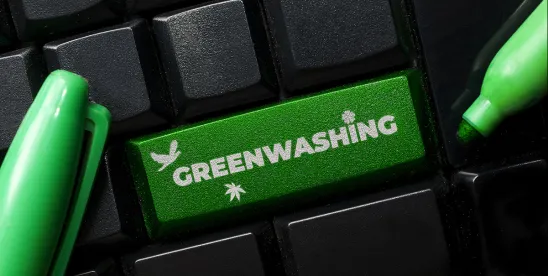In June 2021, a class action lawsuit was filed in California in which restaurant greenwashing was alleged due to sustainability statements made on Red Lobster’s menus. Now, Red Lobster has filed pleadings with the court seeking to have the case dismissed, arguing that plaintiffs failed to establish any colorable claim on which they can prevail. While it remains to be seen what the court will do with the lawsuit, the critical takeaway from the litigation is that any industry, not just the consumer goods industry, must realize that marketing buzzwords such as “sustainable”, “environmentally friendly”, and “responsibly sourced” are in the crosshairs. Now more than ever, globally situated companies of all types that are advertising, marketing, drafting ESG statements, or disclosing information as required by regulatory agencies must pay extremely close attention to the language used in all of these types of documents, or else run the risk of enforcement action or lawsuits.
Restaurant Greenwashing Lawsuit
The 2020 Red Lobster lawsuit alleged that “Seafood With Standards” statements on Red Lobster’s menus regarding the sustainability, traceability and responsible sourcing of its lobster and shrimp were false. Instead, the lawsuit argues, the Maine lobster served by Red Lobster are not sustainably sourced and the farmed shrimp used by the restaurant chain are not responsibly sourced. The lawsuit alleges that Red Lobster’s purveyors instead use environmentally damaging and inhumane methods for catching or harvesting the seafood supplies. As such, marketing statements made on Red Lobster’s menus and in other advertising were false and misleading.
The claims in the Complaint range from allegations that fishing practices harm whale populations to allegations of inhumane treatment of female shrimp to boost reproductivity to allegations of antibiotic and chemical use in shrimp farms to promote rapid growth. The relief sought in the lawsuit is injunctive relied for the court to stop any practices found to be deceptive and misleading, as well as over $5 million in damages (which are as of yet unspecified in terms of exact amount).
Last week, Red Lobster fought back, arguing that the plaintiffs’ allegations regarding the marketing slogan and the information on the restaurant chain’s menus are overbroad. Instead, the company argues, the language on the menus merely invites diners to visit the Red Lobster website to learn more about the company’s commitment to sustainable, tracing and sourcing initiatives. The plaintiffs disagree and argue that an ordinary consumer would not view Red Lobster’s menus as merely a “redirect” to the company’s website, but instead an assertion about the products found on the menu.
Corporate Preparation Is Key
In less than two months in 2022, the fashion industry, the cosmetics industry, and the restaurant industry have seen litigation and regulatory agency activity increase with respect to greenwashing concerns. Restaurant greenwashing complaints provide a natural supply of potential plaintiffs for potential class action lawsuits given the number of consumers that would be subject to the reach of marketing by the industry. We predict that 2022 will see a great degree of regulatory enforcement action and legislation seeking to curb over zealous marketing language or statements that could be seen as greenwashing, and the Red Lobster lawsuit is certainly one to watch to determine the future impact on the industry.
While there are numerous avenues to examine to ensure that ESG principles are being upheld and accurately conveyed to the public, the underlying compliance program for minimizing greenwashing allegation risks is absolutely critical for all players putting forth ESG-related statements. These compliance checks should not merely be one-time pre-issuance programs; rather, they should be ongoing and constant to ensure that with ever-evolving corporate practices, a focused interest by the regulatory agencies on ESG, and increasing attention by the legal world on greenwashing claims, all statement put forth are truly “ESG friendly” and not misleading in any way.




 />i
/>i

